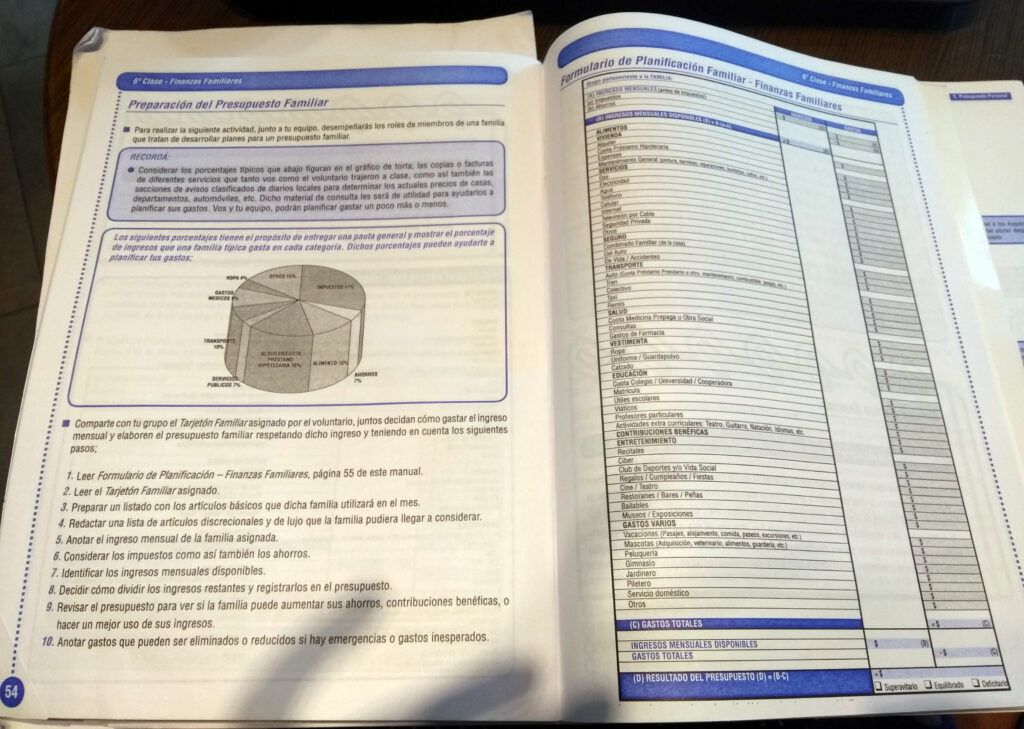I think that volunteer work is a great way to give back to the community, but I haven’t had time to do any since I started college. So, when my academic advisor in Buenos Aires shared a list of potential volunteer opportunities, I jumped at the chance to get involved. One opportunity that stuck out to me was Junior Achievement Argentina, an organization that runs programming to help kids develop practical skills related to their future career and life success.
At Champlain, we also learn important career and financial life skills, like how to make a budget and manage our money, write a résumé and market ourselves to employers. As a volunteer for Junior Achievement Argentina, I would be teaching those same skills to high school students—in Spanish. About a month after I applied, I was contacted by one of Junior’s educational coordinators about helping out with a high school personal economics class. I was a little hesitant at first since I wasn’t sure if my Spanish was strong enough for teaching, but I figured I’d go to the training and see how I felt afterward.
My volunteer training was both comforting and daunting. I learned I’d be working with kids ages 16–18 years old and helping them think about their interests and aptitudes in terms of what future professions they might like to do. I’d also talk them through the steps of the job application process and teach them about budgeting. On one hand, I was very comfortable with the subject matter, however, I also realized there were a lot of specific terminologies I was going to need to research in Spanish. It was helpful to know that the Educational Coordinator from Junior Achievement was going to be with me for my first class.
TEACHING IN ARGENTINA
The first class focused on getting to know everyone and thinking about their interests and aptitudes. I gave my spiel on my work experience and education and why I was in Argentina, but I got nervous and didn’t really talk much outside of that; the Coordinator did most of the talking for the rest of the class. Another class was about brainstorming what types of jobs the students might be suited for based on their interests and aptitudes, plus the process of job applications. I was on my own for this one, but I was more comfortable. It was exactly like a workshop I’d done with my Career Coach in my sophomore year. I worked with students to help them narrow down the specific career paths they could explore using the same process my Career Coach taught me: combine your interests and aptitudes and generate potential career opportunities.

I also talked to the students about the purpose of budgets and how to make them. It was easier than I thought to help the students think about the importance of budgeting and teach them about opportunity costs. (An opportunity cost is an option you miss out on when making a decision. Basically, whenever you spend money on one thing, you miss the opportunity to spend it on something else.) To explain this concept, I gave the personal example of having to choose between a trip to Chile with my friends or replacing my broken phone: I chose a new phone, so the opportunity cost was the trip to Chile. They translated the idea into choosing whether to go out to the movies, eat out or buy new clothes. It was cool to see them “get it.”
I try to live by the ideology that you should put out in the world what you want to receive in return. Being able to volunteer during my semester abroad was a great way for me to give back while also further immersing myself in Argentinian culture. By teaching high school students about personal economics and careers, I also learned about what types of jobs teens want in Argentina and what their educational system is like. I’m grateful that the career education I received at Champlain provided me with the knowledge and understanding of personal finance and career preparation, so I was able to teach younger students about these important topics.
Interested in doing good while you study abroad? Learn more about how you can volunteer while studying abroad and your chance to become an engaged global citizen through Champlain’s Office of International Education.
Quinn Kanner is a Junior majoring in Professional Writing with a Journalism specialization and a Foreign Language minor. She is also a Student Ambassador and works as a Student Writer in Champlain’s Marketing Department.